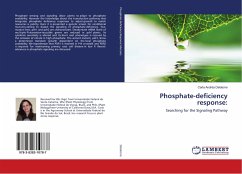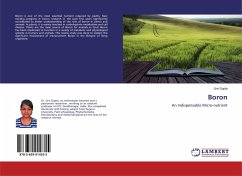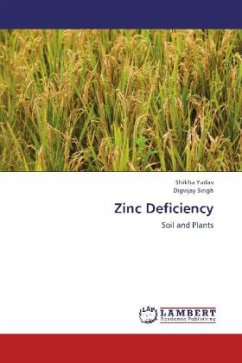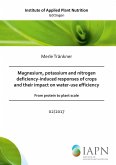Phosphate sensing and signaling allow plants to adapt to phosphate availability. However the knowledge about the transduction pathway that integrates phosphate deficiency responses to adjust growth to match resources is patchy. Here it is presented a genetic screen for conditional mutants aiming to dissect the signaling of phosphate deficiency. Two mutant lines, pdr1 and pdr2 are characterized. Steady-state mRNA levels of multiple Pi-starvation-incucible genes are reduced in pdr1 plants. Its cytokinin sensitivity is altered and its short root phenotype is rescued by the omission of nitrate in high phosphate. The second mutant, pdr2, show a determined meristem growth dependent on the local phosphate availability. We hypothesize that PDR1 is involved in P-N crosstalk and PDR2 is required for maintaining primary root cell division in low P. Recent advances in phosphate signaling are discussed.
Bitte wählen Sie Ihr Anliegen aus.
Rechnungen
Retourenschein anfordern
Bestellstatus
Storno








